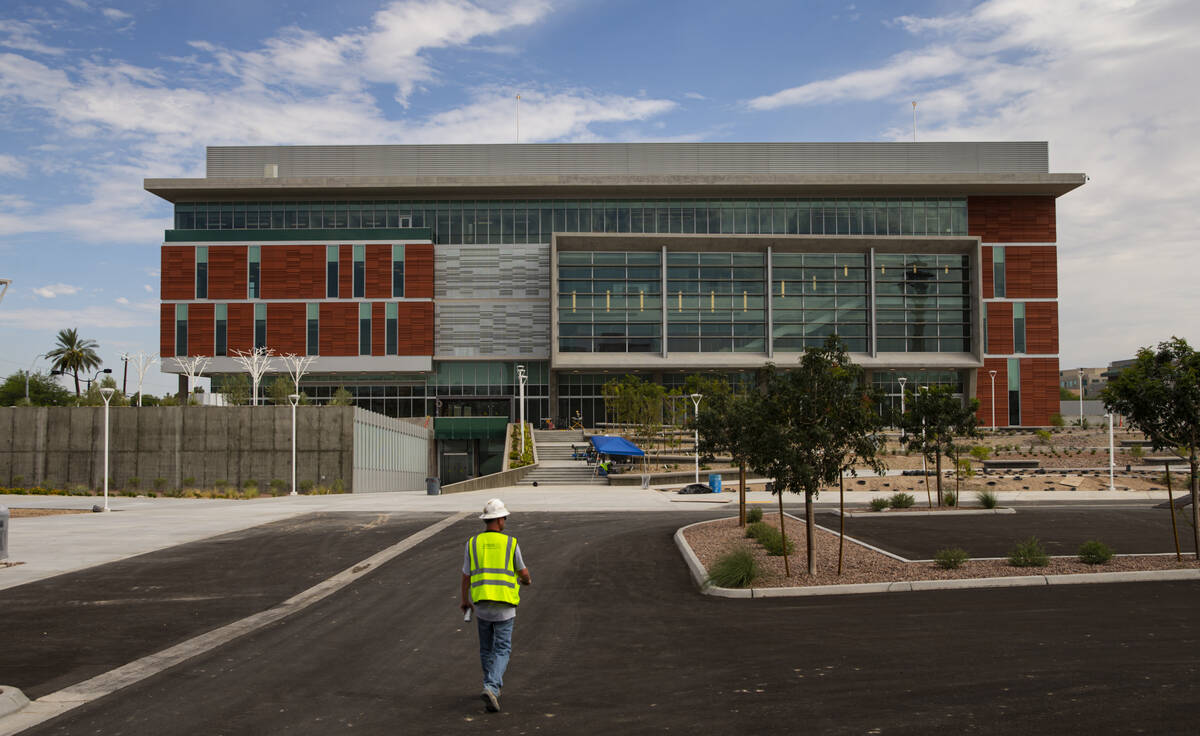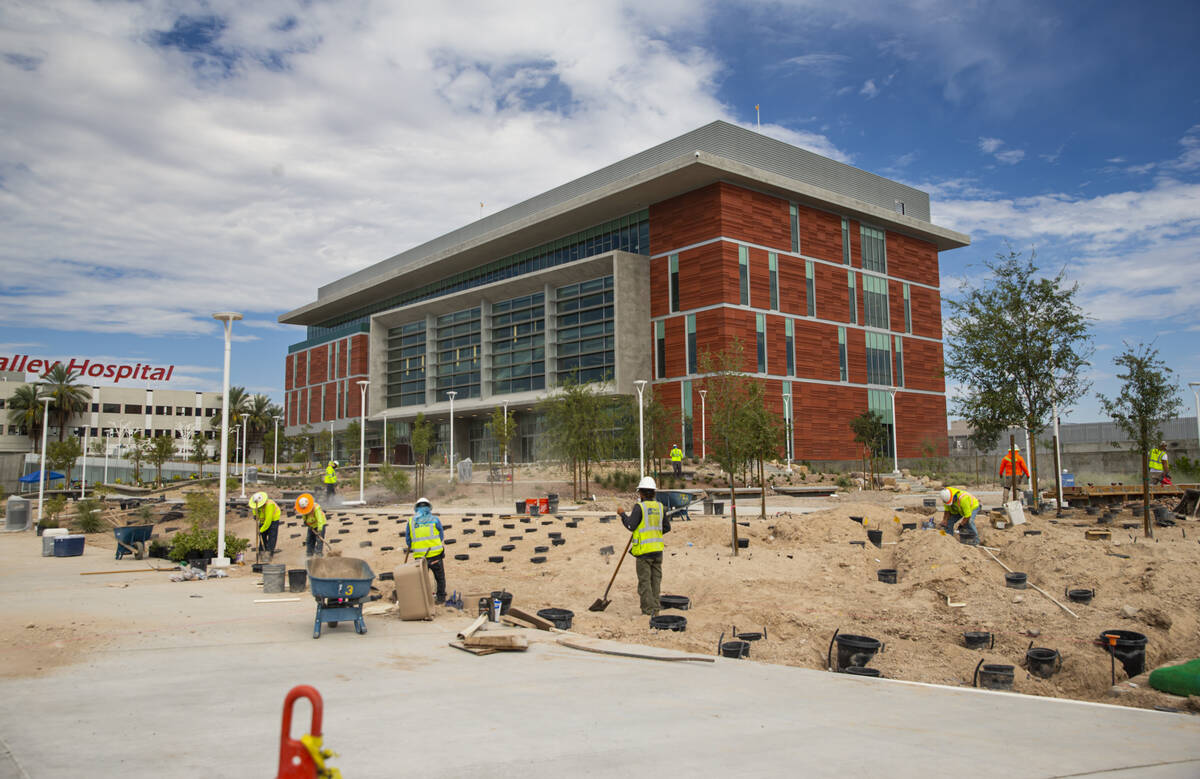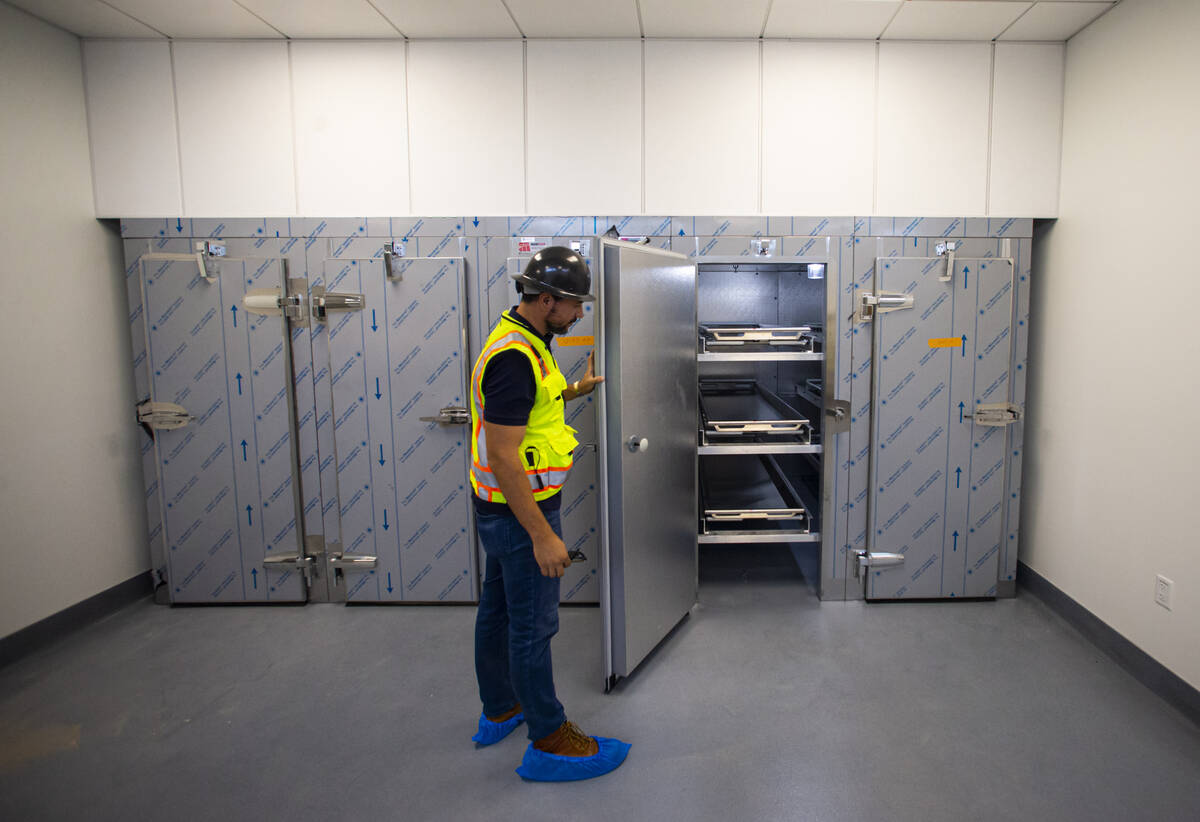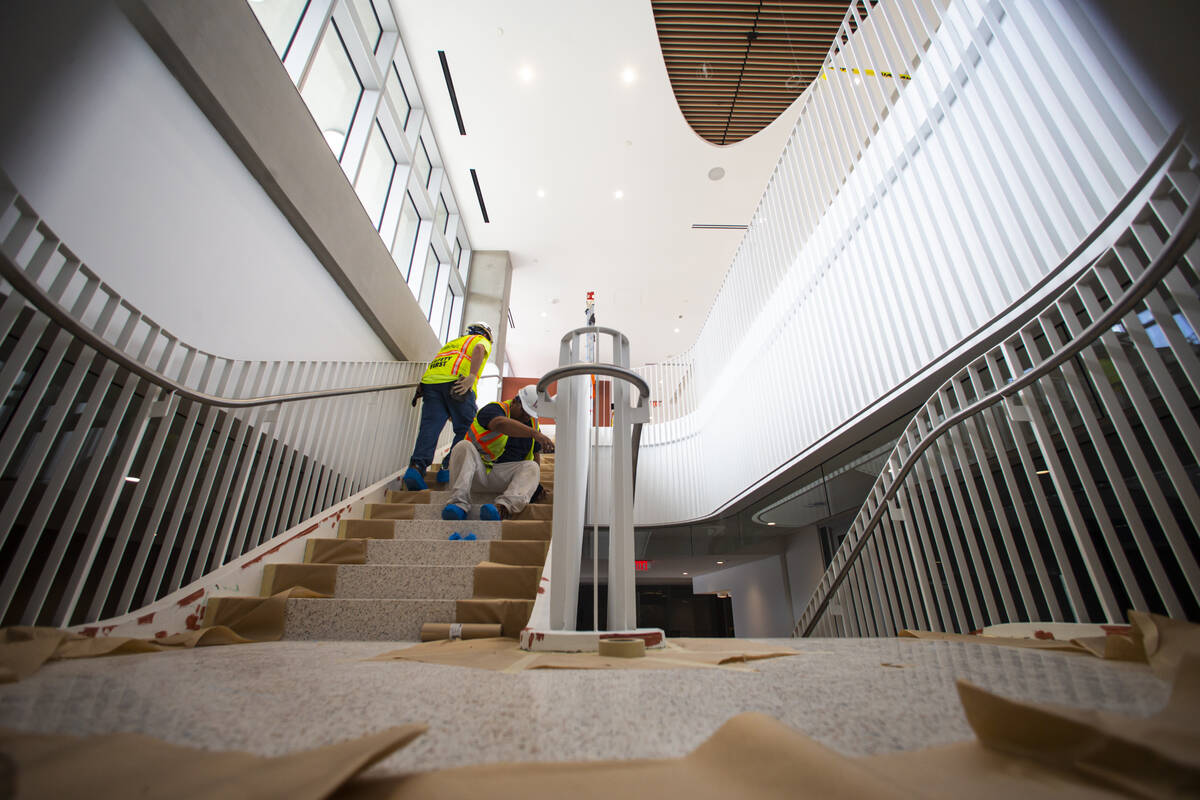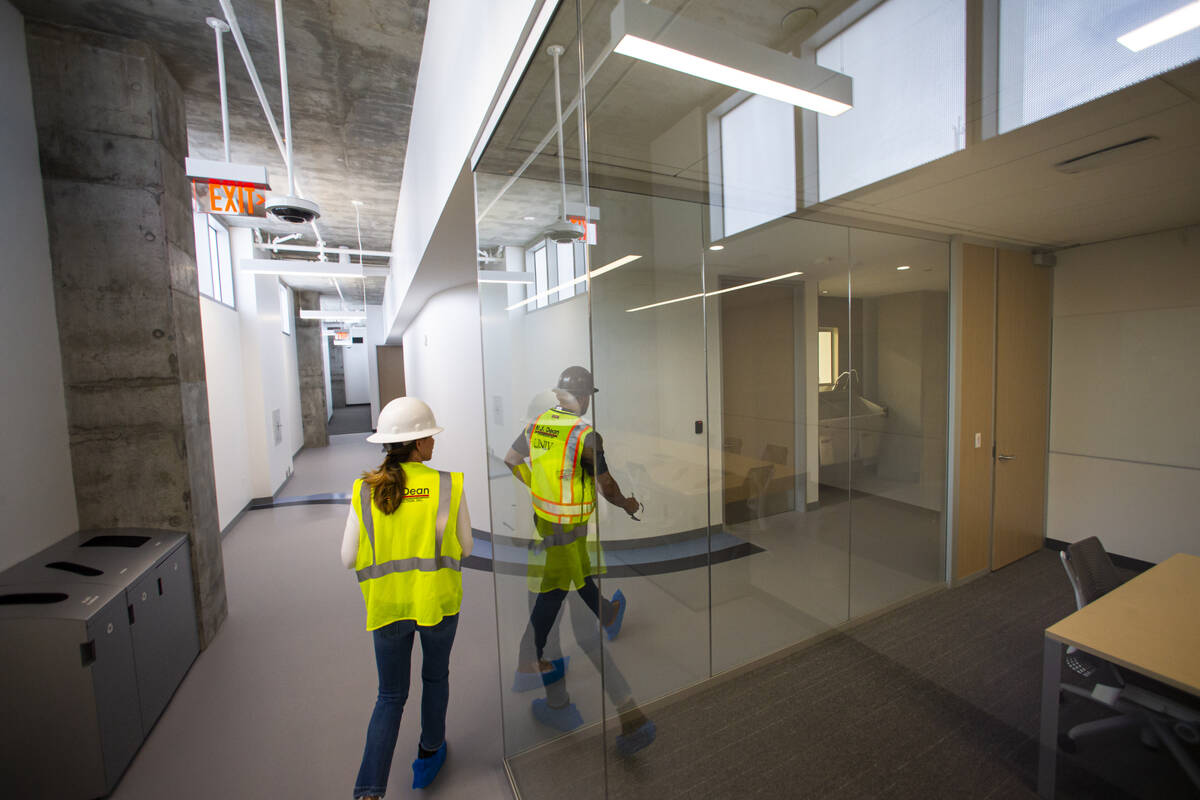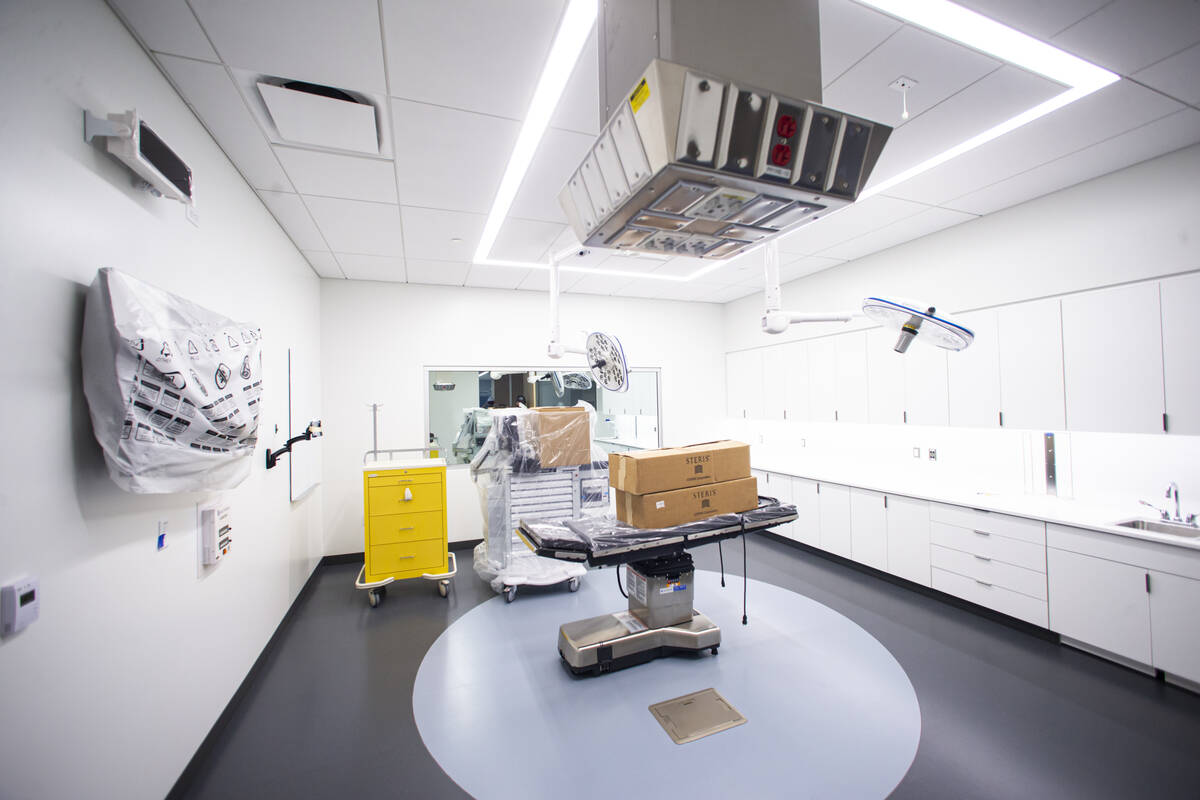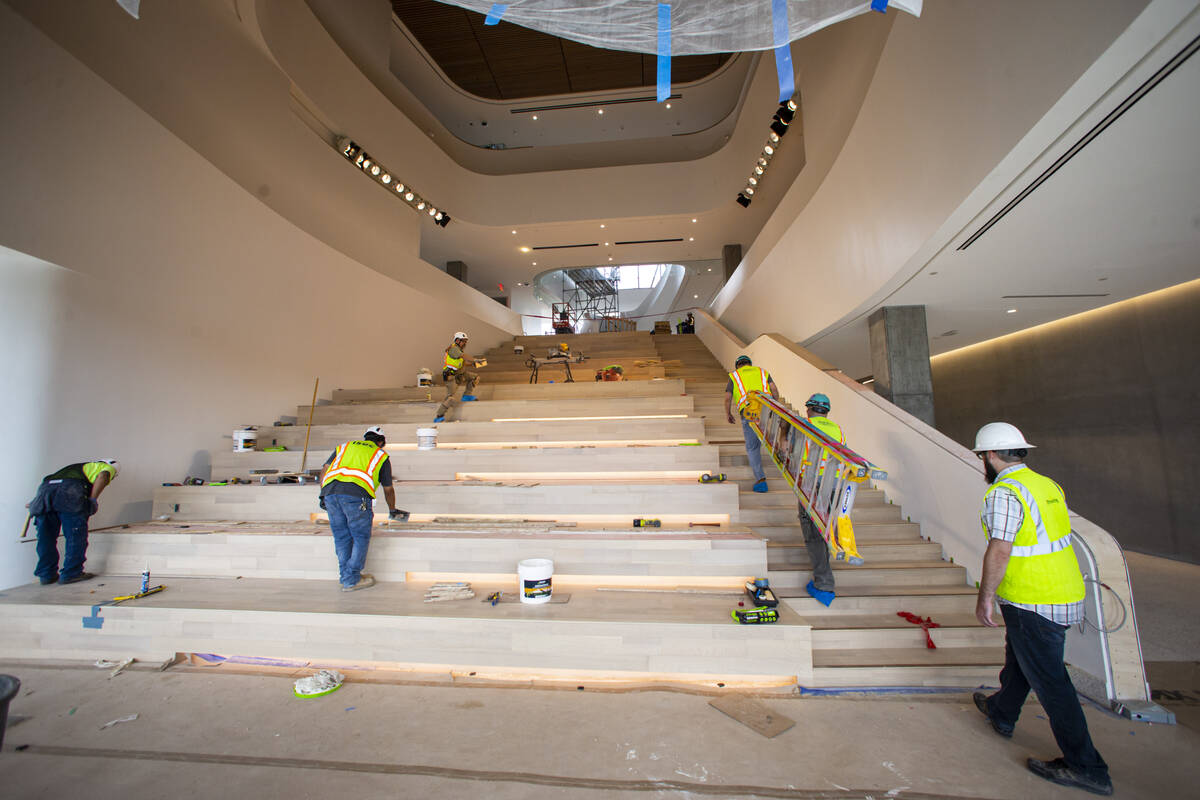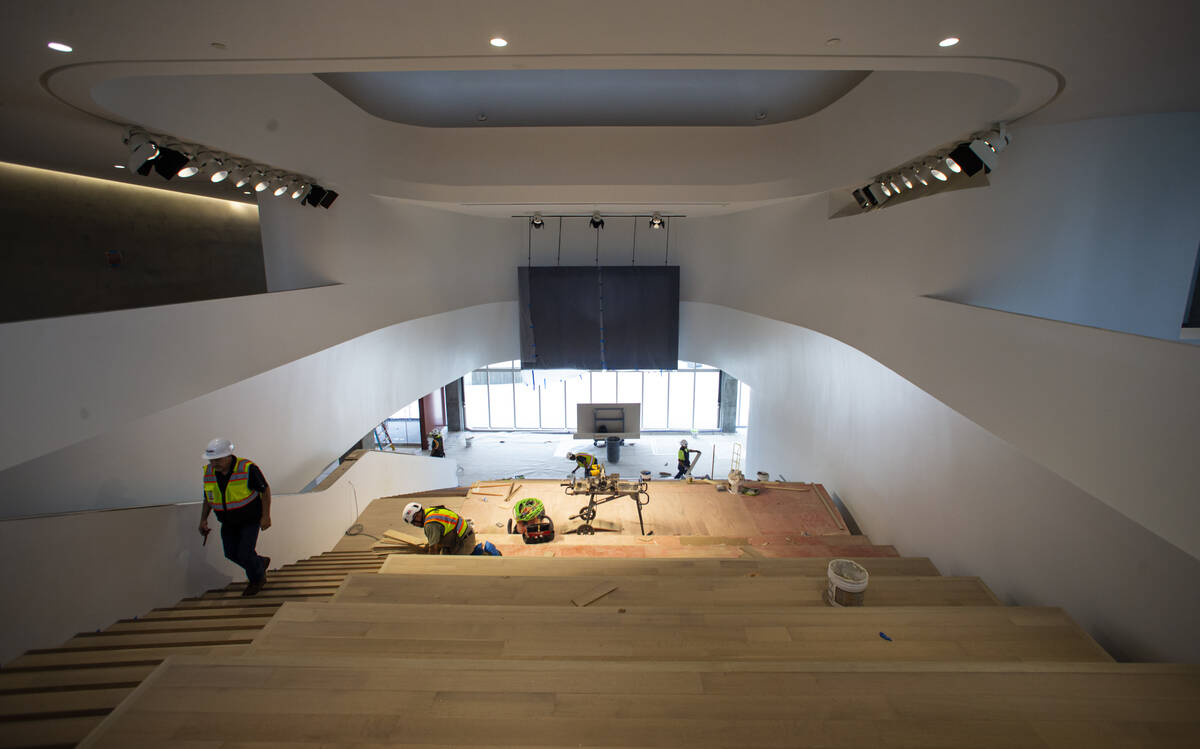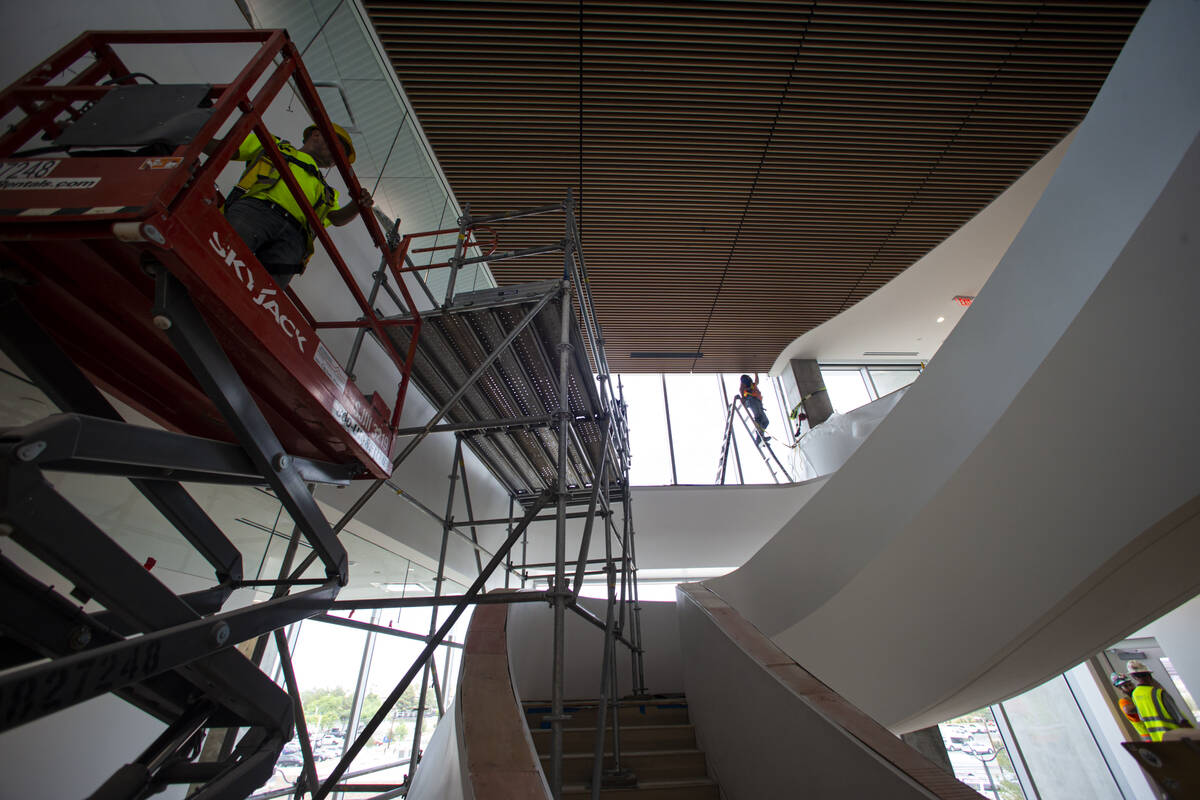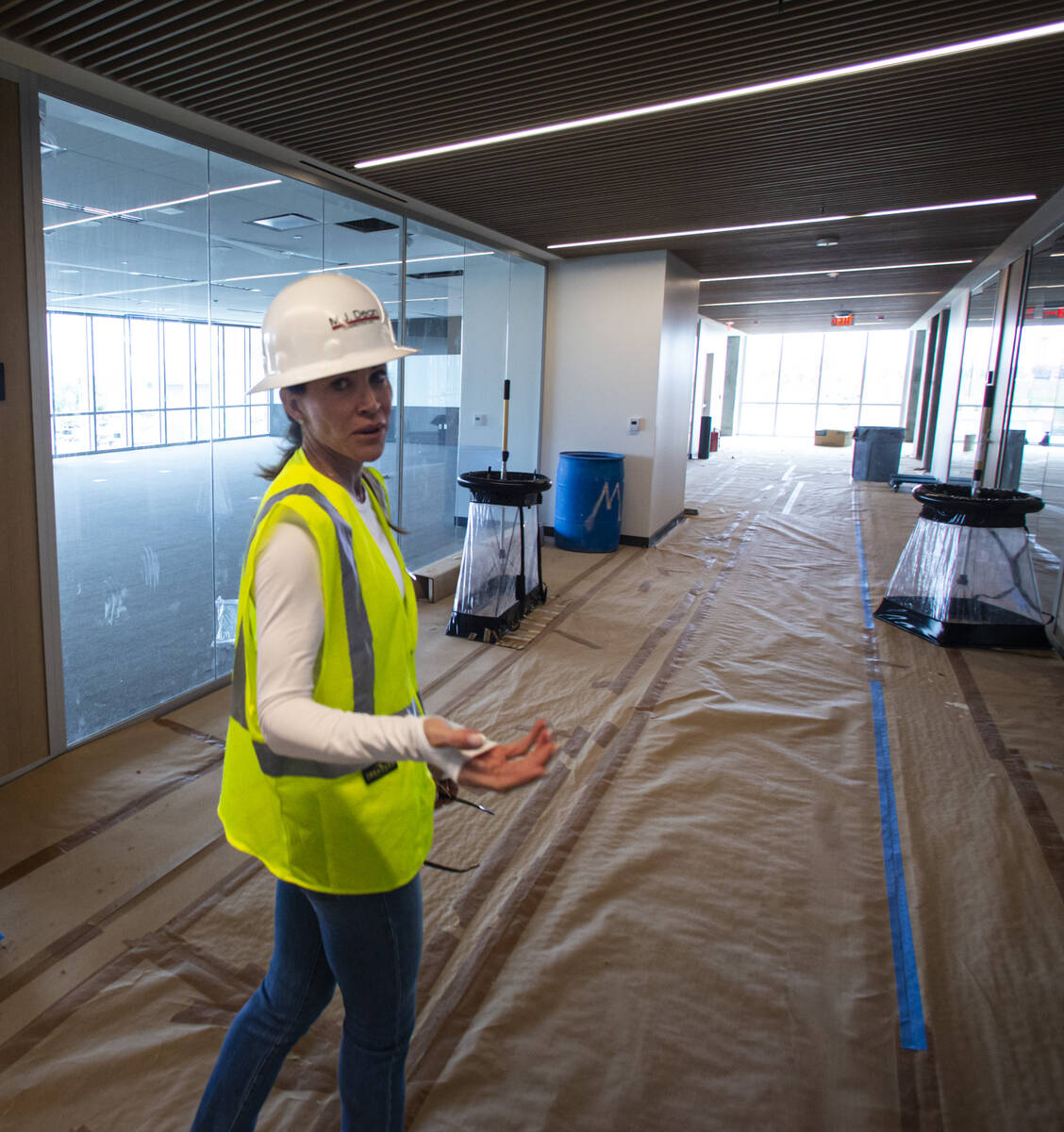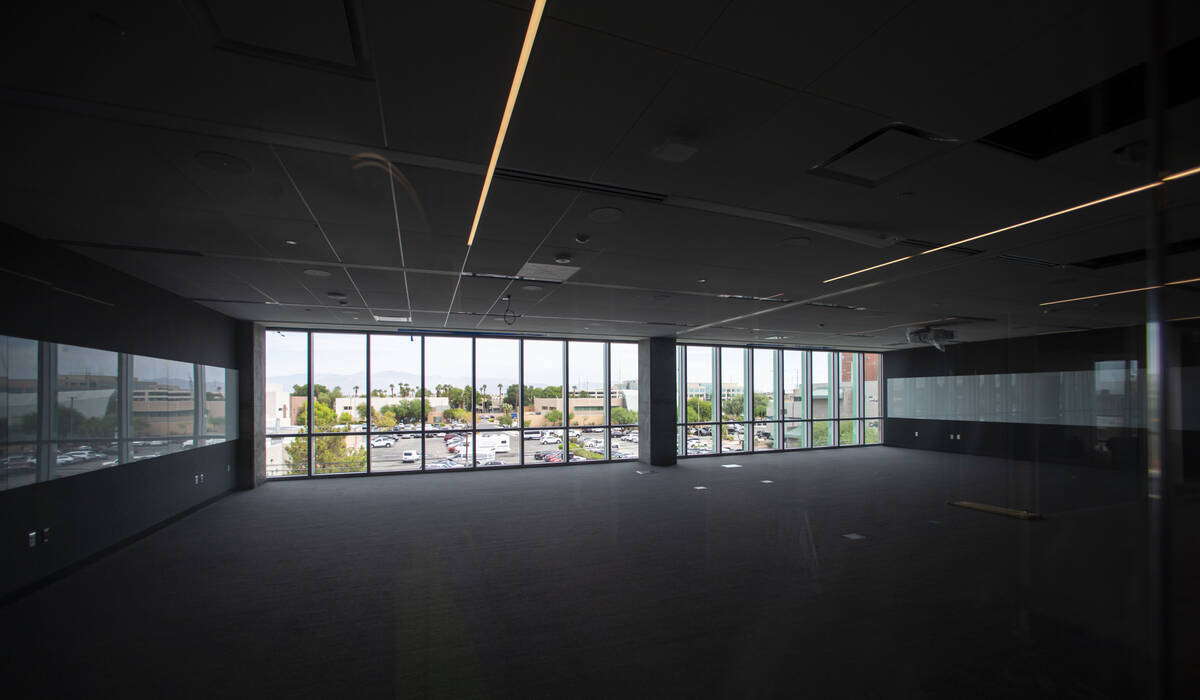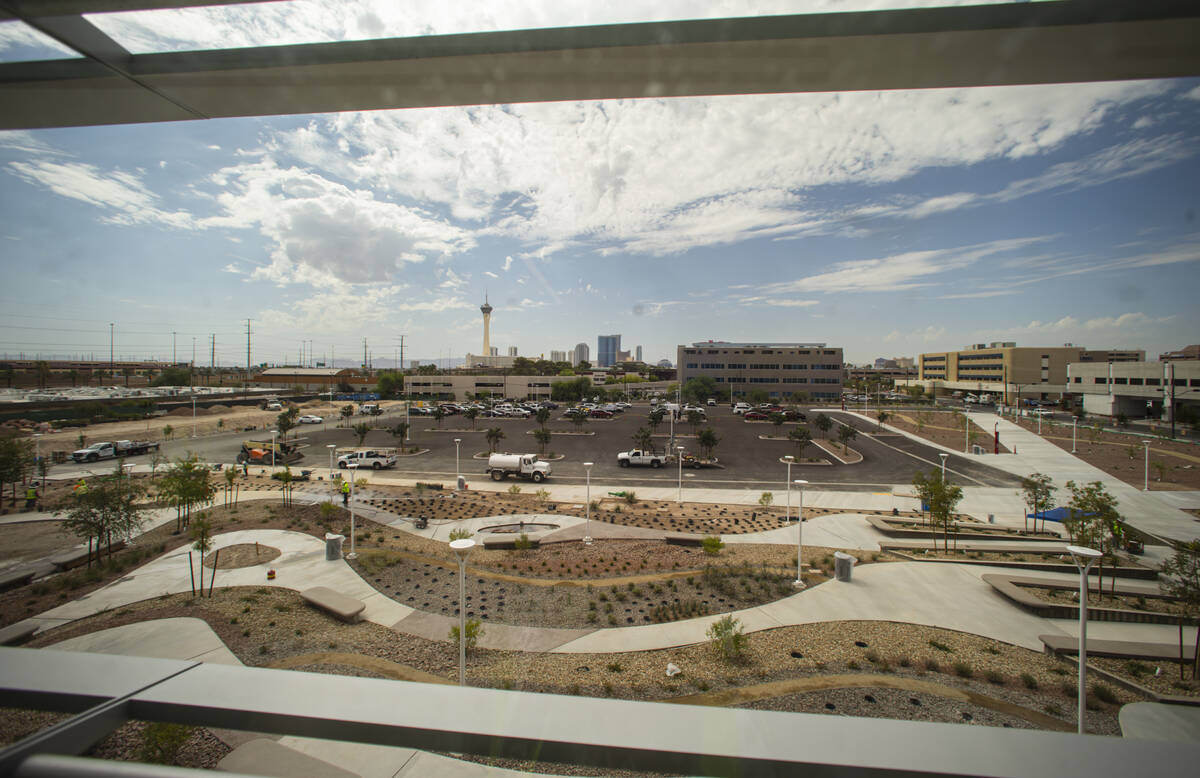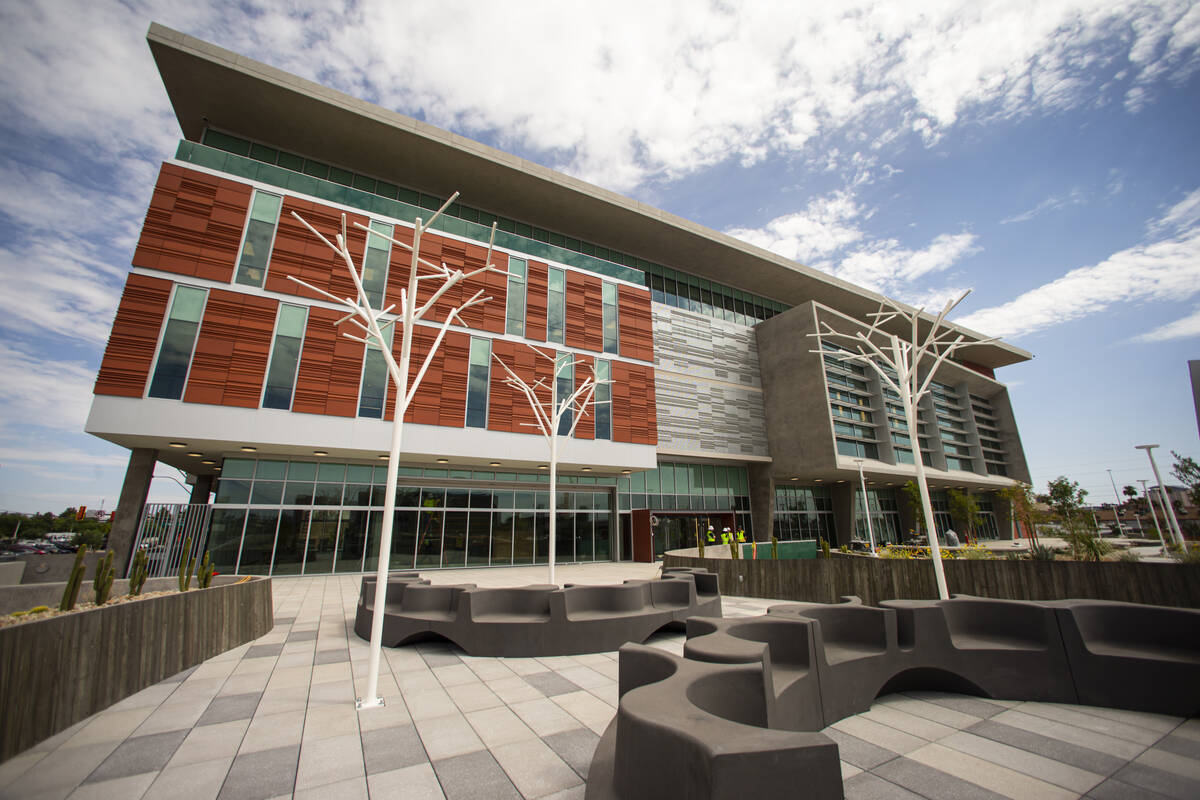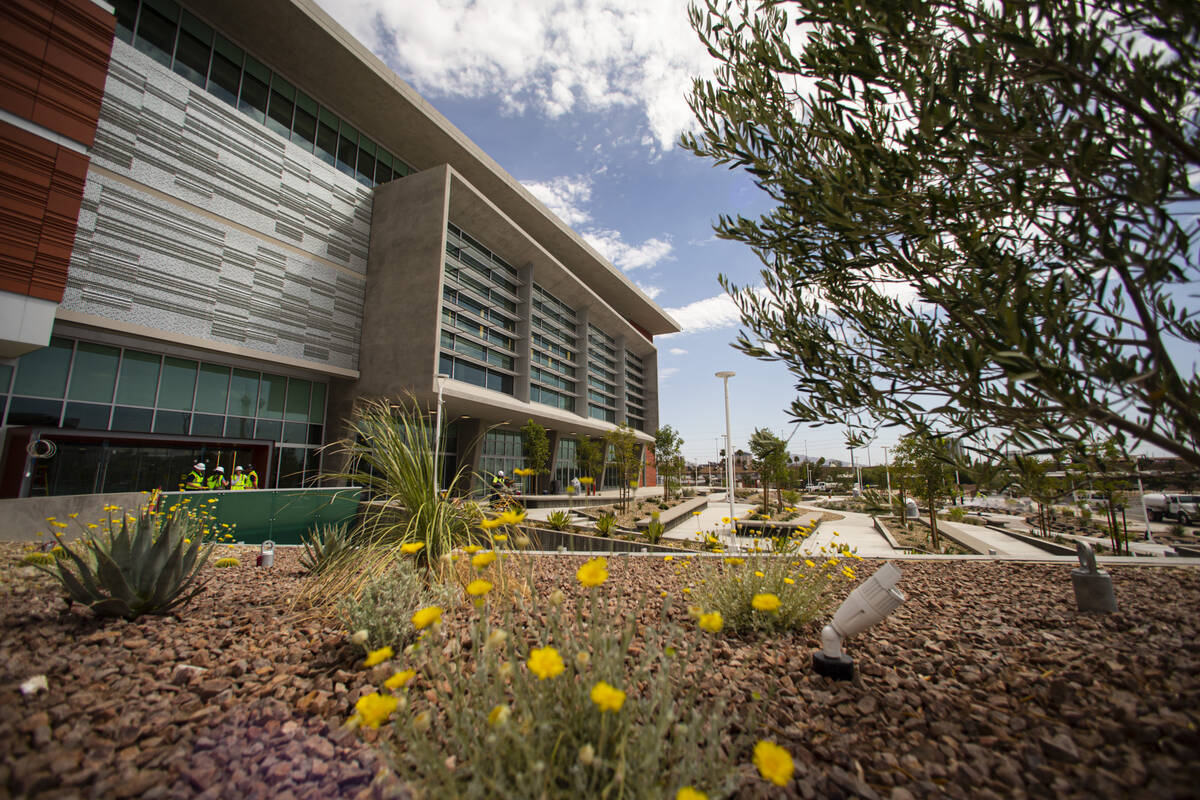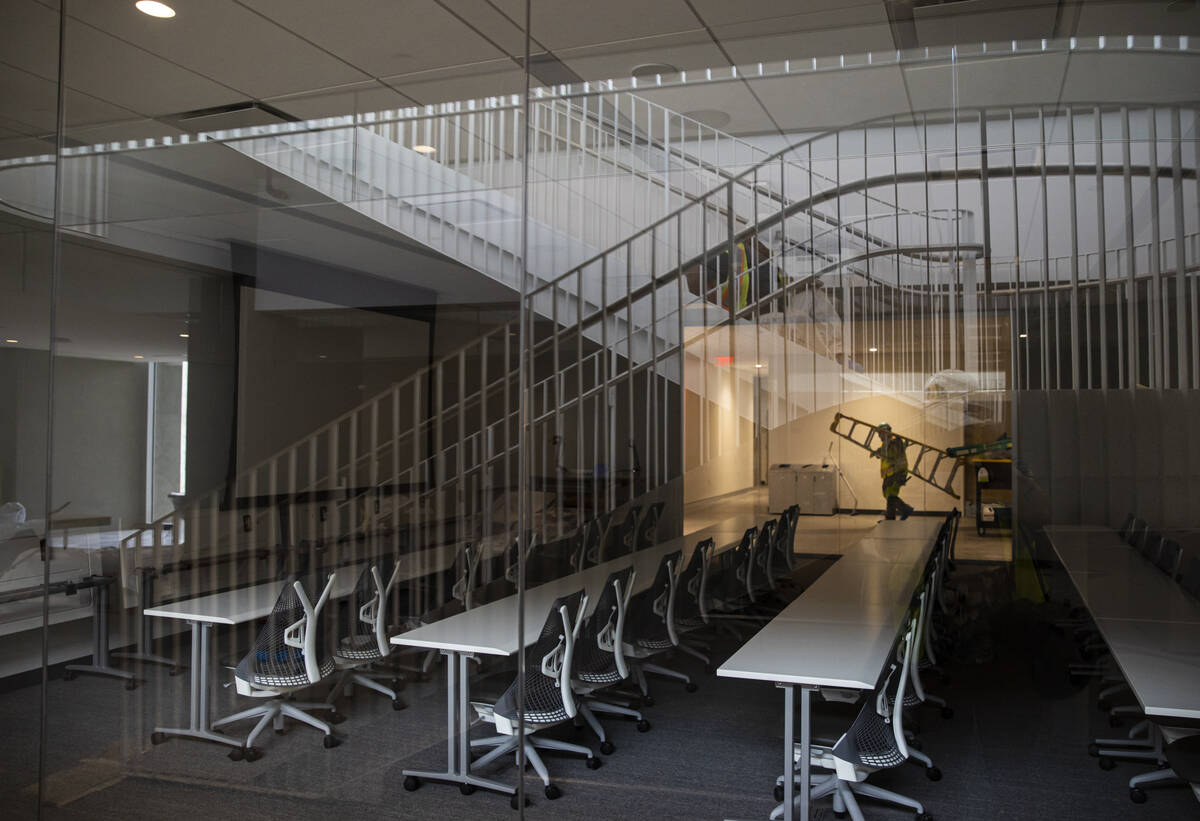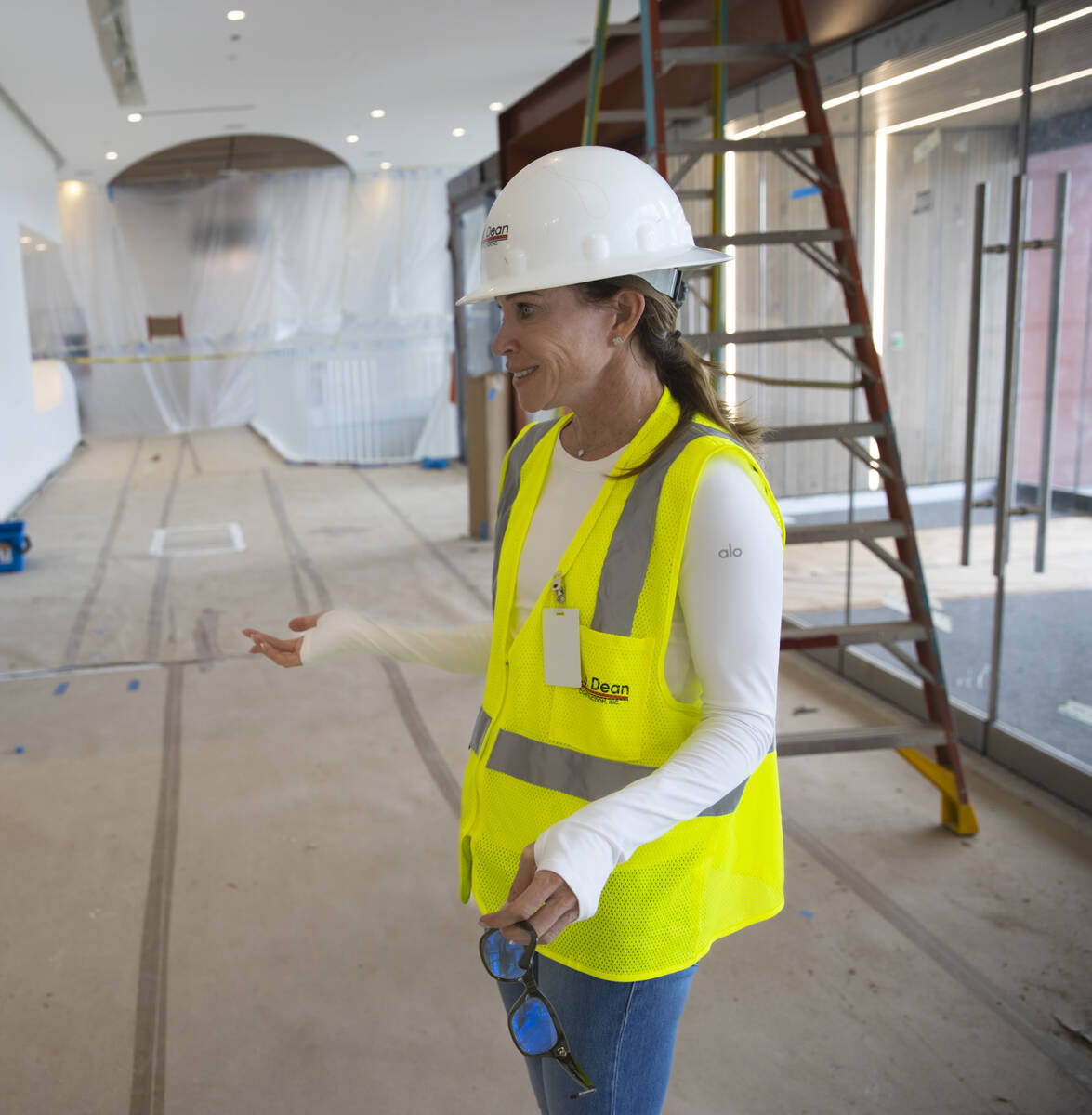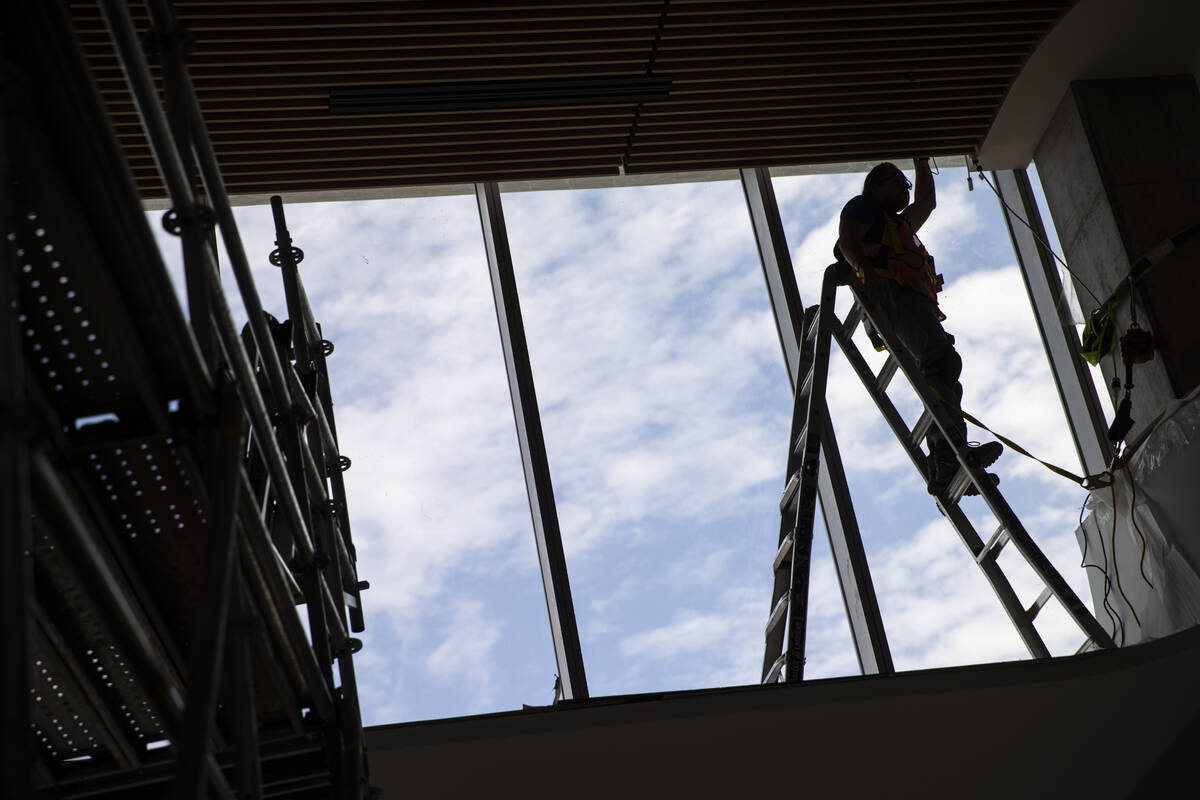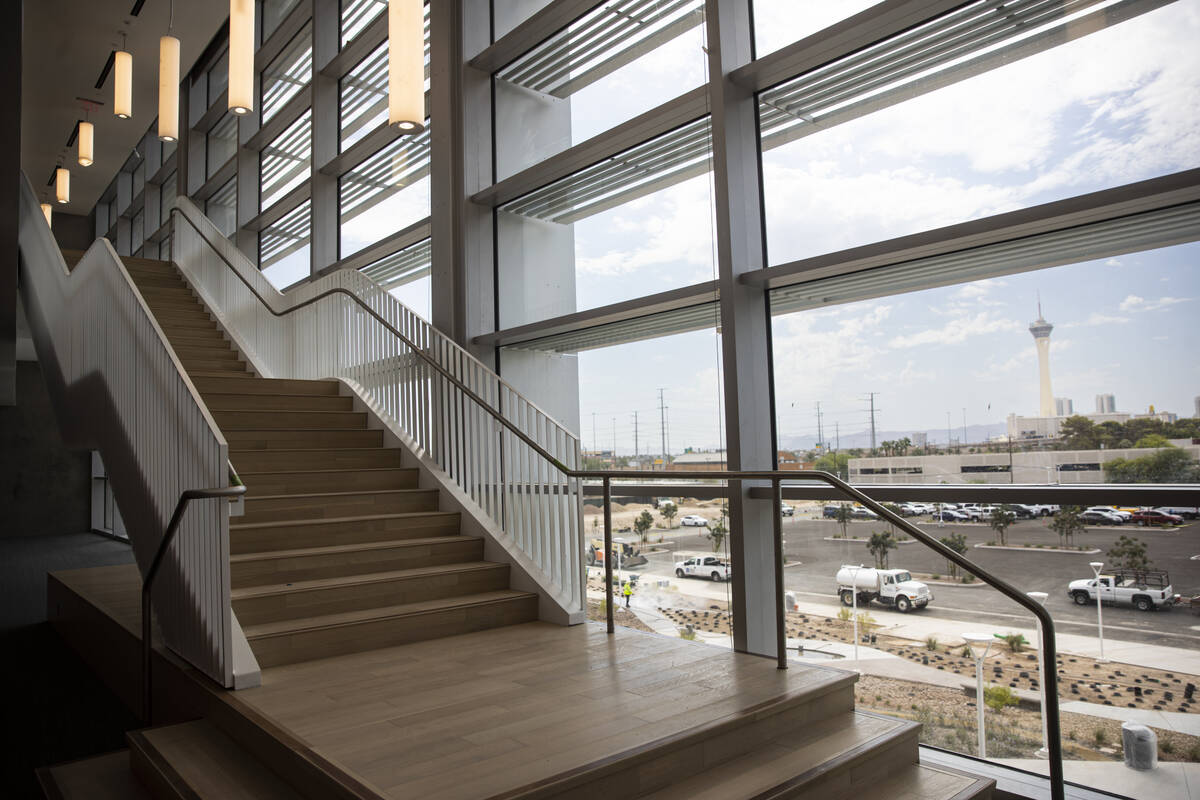UNLV’s new medical education building is nearly complete
Construction is expected to wrap up in late October on the UNLV medical school’s first permanent facility, and students will use the space starting spring semester.
The new medical education building is nearly complete on a 9-acre campus on Shadow Lane across from Valley Hospital Medical Center in the Las Vegas Medical District.
The building’s design is functional for the curriculum but also was created to have a calming effect for students, said Maureen Schafer, president and CEO of the Nevada Health and Bioscience Corp., which is overseeing the project.
While giving the Las Vegas Review-Journal a tour inside the building Wednesday, Schafer pointed out large windows on the back side of the third floor.
“It’s all windows,” she said. “It’s all light.”
The Kirk Kerkorian School of Medicine at UNLV opened in 2017, and its first class of medical doctors graduated in May 2021. It currently has 240 medical students, and more than 300 residents and fellows.
The building will allow the medical school to double its enrollment over time — dependent on state funding and the ability to hire faculty — to help address the state’s physician shortage.
Groundbreaking on the approximately 135,000-square-foot, five-story building was held in the fall of 2020.
The $120 million project is funded through a combination of private and state money. About $25 million in state funding was cut during the COVID-19 pandemic but later restored.
Features such as digital library spaces, classrooms, conference areas and administrative offices are included in the building.
The first floor includes a cadaver lab for dissections, which will be done by students who are going to become surgeons, Schafer said.
It’s a smaller lab than older medical schools, she said, noting there are also many regulations for the space.
“The HVAC system is different for it,” said Loay Hanthel, senior project manager for M.J. Dean Construction.
Other students will use virtual anatomy technology — essentially, a giant screen that lies flat like a table.
“It’s an extraordinary teaching tool for students,” Schafer said.
The first floor also includes simulation rooms, including mock exam rooms.
The surgical simulation room, which has a hand washing station in the hallway outside, has a two-way mirror where faculty can observe students.
A “forum” gathering place features stadium-style seating and a big digital screen that can be used for academic or social gatherings, and community events.
Airplane hangar-style doors open up to an outdoor space that includes living gardens, Schafer said.
The third floor includes classrooms that facilitate the school’s problem-based learning curriculum that allows students to learn in small groups rather than in the traditional lecture hall format, Schafer said.
Future projects
Earlier this month, the medical school announced that it will receive $40 million in federal coronavirus relief money awarded by Gov. Steve Sisolak and the state Legislature’s interim finance committee to build an ambulatory care clinic on its campus that will include operating rooms for outpatient surgeries.
“An Ambulatory Care Clinic will help change the paradigm of care in Southern Nevada,” UNLV medical school Dean Dr. Marc Kahn said in a news release. “It will provide coordinated care to patients, including mental and behavioral health, all in one place.”
The medical school also was awarded $30 million to build a pathology lab. It will strengthen the partnership between UNLV and University Medical Center, “speeding the delivery of critical test results like those needed during the pandemic,” according to the release.
“This lab will allow us to turn around test results faster, as well as provide valuable training opportunities for young doctors performing original research,” Khan said.
Schafer said she doesn’t have a timeline for when groundbreaking will happen for the two buildings, which will be on the medical school’s campus. Nevada Bioscience and Health Corp. will oversee those two projects.
Contact Julie Wootton-Greener at jgreener@reviewjournal.com or 702-387-2921. Follow @julieswootton on Twitter.



